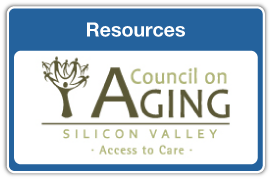Durable Power Of Attorney
What is Durable Power of Attorney?
A Durable Power of Attorney is a written document in which one person (the principal) appoints another person to act as an agent on his or her behalf. There are two types of durable power of attorney: power of attorney for finance and power of attorney for health care.
Durable Powers of attorney are routinely granted to allow the agent to take care of a variety of transactions for the principal, such as executing a stock power, handling a tax audit, or maintaining a safe-deposit box. Powers of attorney can be written to be either general (full) or limited to special circumstances. A durable power of attorney generally is terminated when the principal dies or becomes incompetent, but the principal can revoke the power of attorney at any time.
Traditional vs. Durable Power of Attorney
A special type of power of attorney that is used frequently is the “durable” power of attorney. A durable power of attorney differs from a traditional power of attorney in that it continues the agency relationship beyond the incapacity of the principal. The two types of durable power of attorney are immediate and “springing.” The first type takes effect as soon as the durable power of attorney is executed. The second is intended to “spring” into effect when a specific event occurs, such as the disability of the principal. Most often, durable powers of attorney are created to deal with decisions involving either property management or health care.
Durable powers of attorney have become popular because they enable the principal to have her or his affairs handled easily and inexpensively after she or he has become incapacitated. Before the durable power of attorney was created, the only way to handle the affairs of an incapacitated person was to appoint a guardian, a process that frequently involves complex and costly court proceedings, as well as the often humiliating determination that the principal is wholly incapable and in need of protection.
With a durable power of attorney, on the other hand, a principal can appoint someone to handle her or his affairs after she or he becomes incompetent, and the document can be crafted to confer either general power or power in certain limited circumstances. Because no judicial proceedings are necessary, the principal saves time and money and avoids the stigma of being declared incompetent.
What is a Durable Power of Attorney for finance? Why do I need one?
A durable power of attorney for finances – or financial power of attorney – is a simple, inexpensive, and reliable way to arrange for someone to manage your finances if you become incapacitated (unable to make decisions for yourself).
A financial power of attorney is a good document to make for yourself, but it can also be a great blessing for your family. If you become unable to decide for yourself and you haven’t prepared a durable power of attorney, a court proceeding is probably inescapable. Your spouse, closest relatives, or companion will have to ask a court for authority over at least some of your financial affairs.
What is a Power of Attorney for health care? Why do I need one?
There are two basic documents that allow you to set out your wishes for medical care: a living will and a durable power of attorney for health care. It’s wise to prepare both. In some states, the living will and the power of attorney are combined into a single form — often called an advance directive. (In fact, both of these documents are types of health care directives — that is, documents that let you specify your wishes for health care in the event that you become unable to speak for yourself.)
Powers of Attorney for Health Care
You’ll also want what’s usually called a durable power of attorney (DPOA) for health care. In this document, you appoint someone you trust to be your health care agent (sometimes called an attorney-in-fact for health care, health care proxy, or surrogate) to make any necessary health care decisions for you and to see that doctors and other health care providers give you the type of care you wish to receive.






